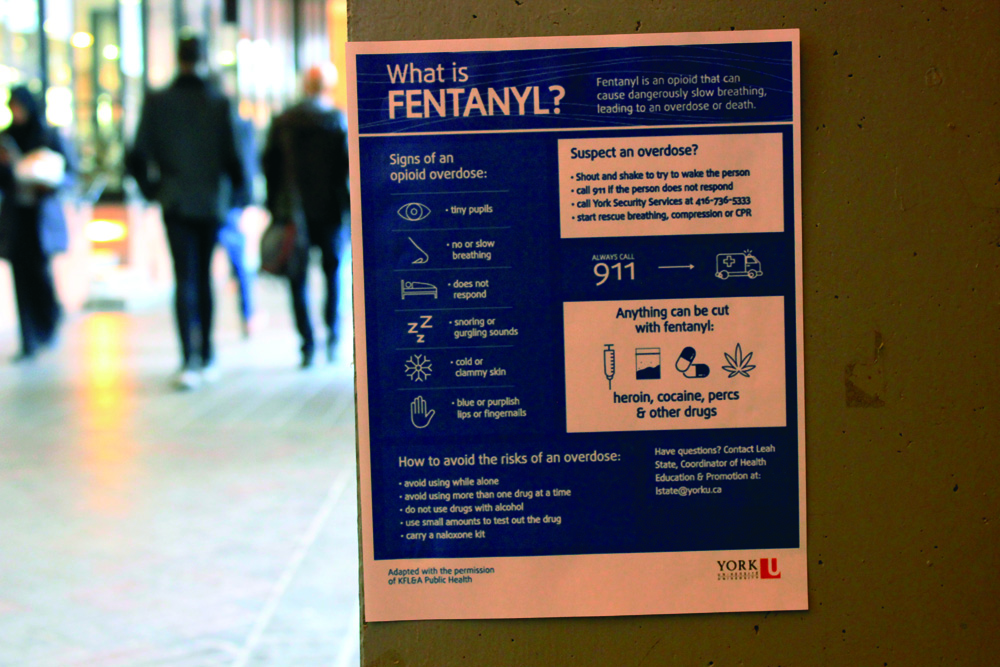Dennis Bayazitov | Assistant News Editor
Featured image: The posters are part of a larger effort to raise awareness on campus about the dangers associated with fentanyl. | Basma Elbahnasawy
York’s Health Education & Promotion team and the Community Safety Department are collaborating to spread awareness about the fentanyl crisis and the dangers of opioids.
Last week, hundreds of blue and white posters were hung up around both Keele and Glendon campuses informing students about what fentanyl is, how to identify an opioid overdose, how to avoid the risks of one, and what immediate steps to take in witnessing one.
Community Safety Executive Director Samina Sami explains that the fentanyl crisis continues to escalate on a worldwide scale, now becoming an increasingly serious public health concern.
Although York has not yet reported any instance of an opioid overdose, “we have taken a number of actions as part of a broader national effort of readiness and best practice,” she notes.
Community Safety security staff have been trained by Toronto Public Health on administering Naloxone in a nasal spray called Narcan, in addition to receiving training from an external First Aid Training provider. Both training units have indicated that the drug does not come with adverse side effects and is safely administrable.
One York Media release characterizes Naloxone as a fast-acting and temporary antidote.
“We would, of course, follow protocol and contact EMS immediately in that type of health emergency,” Sami adds.
“Security staff are trained to respond to all types of medical emergencies on campus and the department has recently upgraded its first aid training and accreditation in an effort to respond to a greater degree—including the ability to provide supportive medical care to individuals—by administering oxygen and emergency first aid.”
York has purchased 10 such Narcan kits, currently stored in emergency first aid bags in key locations across both campuses. Each bag contains one Narcan intranasal single-dose application, oxygen, and an automated external defibrillator, as well as medical supplies to support mitigating emergency needs.
A Toronto Overdose Information System report stated substance-related emergency department visits at Toronto hospitals increased from April through early September 2017. The number of suspected overdose cases have also increased, with the observed time period in the week of July 31 to August 6 having shown the highest number of substance-related visits and suspected overdose cases.
More than 100 university staff have received training on opioid and fentanyl awareness, including Resident Life staff and dons.




